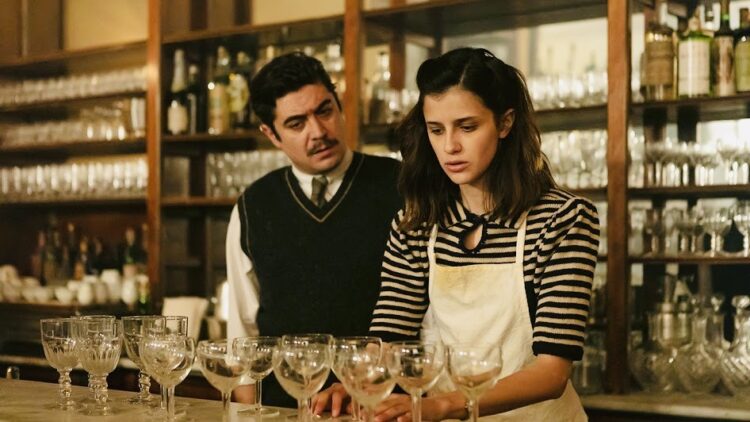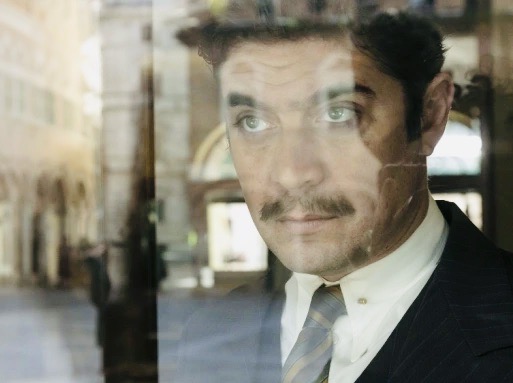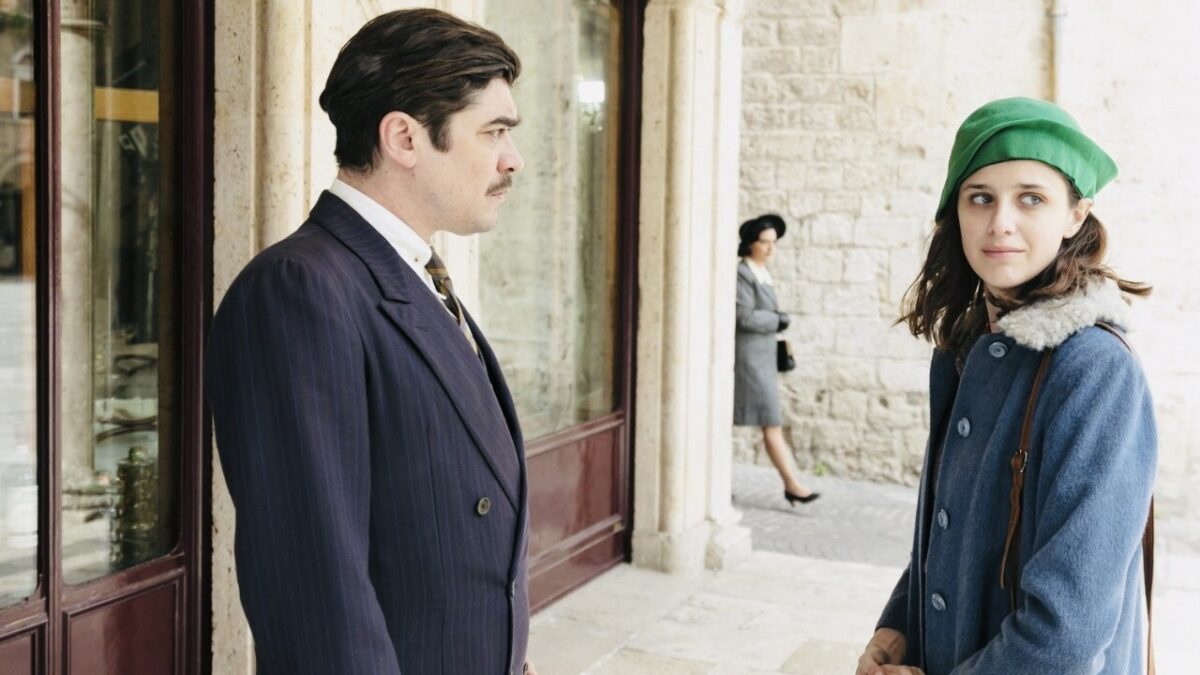Giuseppe Piccioni’s appealing Italian-language movie, The Shadow of the Day, unfolds in a small town in late-1930s fascist Italy against the backdrop of a highly improbable love affair. It will be screened at the Toronto Jewish Film Festival on June 10.
Luciano (Riccardo Scamarcio), the middle-aged manager of a fine restaurant in Ascoli Piceno, is going about his business when a young woman in her late twenties or early thirties named Anna (Benedetta Porcaroli) asks him for a job. He hires her and, in a sign of his decency, he provides her with a meal before she starts working as a waitress.
A wounded and decorated veteran of World War I, Luciano is a supporter of Benito Mussolini’s fascist regime. He keeps his political views to himself, unlike his talkative friend Osvaldo (Lino Musella), a local official of the ruling party. Intense and private, Luciano does not waste words frivolously.
Luciano, a bachelor, likes Anna, who is clearly intelligent, diligent and trustworthy. He not only entrusts her with the key to the restaurant, but invites her to a picnic in the countryside. They enjoy each other’s company, and he confesses he cannot imagine the restaurant without her.

Scamarcio, who bears a resemblance to the American matinee idol Clark Gabel, melts into his role seamlessly. Porcaroli is also convincing.
Anna, having learned to trust Luciano, reveals a secret. Her real name is Esther. “You’re Jewish,” he says without missing a beat. She discloses that her parents have been victimized by Italy’s new antisemitic edicts. He assures her that Italy is not Nazi Germany.
In the following scene, they consolidate their relationship. Unbeknownst to Luciano, Anna is married. Her husband, Emile (Wael Sersoub), suddenly turns up in the restaurant. She is totally surprised. They have not seen each other in a year. Emile needs room and board for a few days, and Anna asks Luciano for this favor. Luciano accedes to her request, but is disappointed by Anna’s failure to disclose the full truth regarding her background.
The film is thoroughly anti-fascist. One of its secondary characters, an aging law professor and a regular patron of the restaurant, professes to be loyal to Mussolini’s government.
Giovanni (Vincenzo Nemolato), the chef, is outspokenly hostile to Mussolini and cracks jokes about him.
By contrast, Corrado (Constantino Seghi), a young waiter, supports the Italian dictator and hews to antisemitic beliefs, claiming that Jews “are not like Italians.”
Italy’s declaration of war against the Allies emboldens Osvaldo, who thinks that Italy stands to gain foreign colonies from its alliance with Germany. The new situation appears to have no outward effect on Luciano.

After Corrado disappears, Osvaldo’s friendship with Luciano turns sour, while Luciano’s feelings for Anna intensify. Indeed, he admits she has changed his life. Their relationship, however, is unsustainable, if only because Italy has marginalized and persecuted its Jewish citizens.
What are they to do under such unforgiving circumstances?
The Shadow of the Day, which is both soulful and endearing, grapples with this overarching problem realistically.
